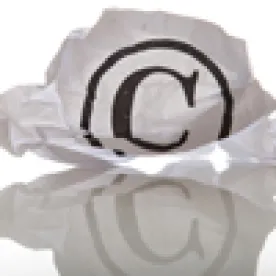Although sending a takedown request for the unauthorized use of copyrighted content on the Internet under the Digital Millennium Copyright Act (DMCA) may appear simple, the US Court of Appeals for the Ninth Circuit recently sent a strong reminder that it is far from a simple process. On summary judgment in Lenz v. Universal Music Corp., the Ninth Circuit rejected Universal Music Corp.’s (Universal’s) DMCA takedown notice defense since there remained a question of fact as to whether Universal considered the defense of copyright fair use before requesting the takedown.
The Ninth Circuit’s Decision in Lenz
In Lenz, plaintiff Stephanie Lenz uploaded a 29-second home video to YouTube that showed her children dancing to the song “Let’s Go Crazy.” Universal sent a takedown notice to YouTube that requested the video’s removal from the website pursuant to DMCA, claiming that the video constituted infringement of the copyrighted music. Subsequently, Ms. Lenz filed suit, arguing that Universal’s review procedures failed to explicitly consider whether her use of the music constituted fair use. The inadequate review procedures, according to Ms. Lenz, amounted to a knowing, material misrepresentation under 17 U.S.C. § 512(f) (which allows for the recovery of damages against copyright owners that wrongfully request copyrighted content to be removed).
The Ninth Circuit held that the DMCA “requires copyright holders to consider fair use before sending a takedown request, raising a triable issue as to whether the copyright holder in Lenz formed a subjective good faith belief that the use was not authorized by law” that could not be resolved on summary judgment. Fair use, the court reasoned, is a legally authorized use that does not amount to infringement. A copyright holder cannot assert that a use is not authorized by law—as it must under the DMCA—unless the copyright holder holds a subjective good faith belief that the use is not fair use.
What does this consideration of fair use require? On this question, the Ninth Circuit’s decision provides limited guidance. The court stated that, on the one hand, if a copyright holder ignores, neglects, or only “pays lip service” to the question of fair use, it is subject to 512(f) liability. On the other hand—“mindful of the pressing crush of voluminous infringing content that copyright holders face in a digital age” and the purpose of the DMCA’s efficient takedown procedures—the court noted that the fair use consideration “need not be searching or intensive” and “does not require investigation of the allegedly infringing content.” Notably, the court left open the possibility that the implementation of proper computer algorithms could be a valid and good faith middle ground for processing a plethora of content on the Internet while at the same time meeting the DMCA’s requirements to consider fair use.
Considerations for Copyright Holders after Lenz
To avoid monetary liability under the DMCA for wrongful takedown requests of copyrighted content, copyright holders should incorporate a threshold level of review before proceeding with a request, including a reasonable confirmation of both copyright ownership and infringement. After Lenz, copyright holders should also strongly consider integrating into their procedures the documentation of their consideration of copyright fair use factors before requesting a takedown of copyrighted content.
As long as the copyright owner owns the copyrighted content and forms (and documents) a subjective good faith belief that the use is infringing (i.e., is not fair use), copyright owners should meet the requirements of Lenz and be well-positioned to avoid liability for wrongful DMCA takedown demands.



 />i
/>i

